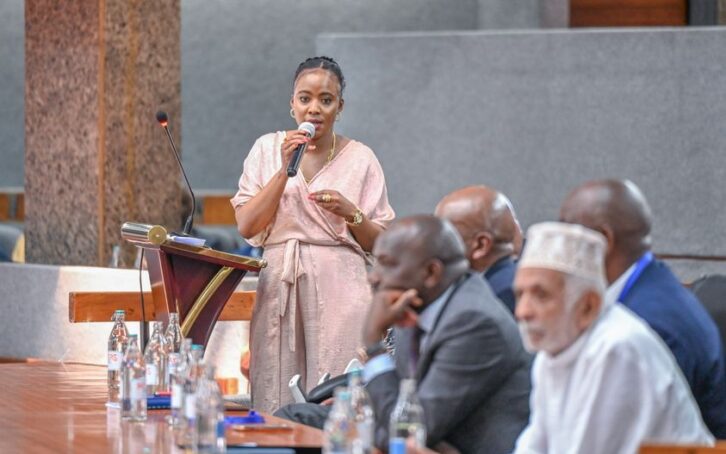Radio World’s “Guest Commentaries” section provides a platform for industry thought leaders and other readers to share their perspective on radio news, technological trends and more. If you’d like to contribute a commentary, or reply to an already published piece, send a submission to [email protected].
The author is an award-winning youth advocate. He is the co-founder of a number of community initiatives including the Youth Congress, a premier youth-led organization in Kenya.
It is common to find broadcast radios in public service vehicles. Sometimes referred to as “matatus” in Kenya, these vehicles are popular with passengers, and one wonders why. To learn more, I interviewed Patricia Mutheu Musyimi, the CEO of Matatu Owners Association — an alliance of public service vehicles in Kenya that works to improve public transport conditions.
(Editor’s note: In Kenya, matatu or matatus are privately-owned minibuses used as shared taxis. Often decorated, many matatu feature portraits of famous people or slogans and sayings. Likewise, per the BBC, the music they play is also aimed at quickly attracting riders. More than 70% of commuter trips are taken using matatu in cities like Nairobi, per Down to Earth magazine.)
In this interview, Musyimi shares perspectives on the important topic of radios in public service vehicles, brilliantly weighing their importance as well as areas that require improvements.

Raphael Obonyo: What is the practical use of radios in public service vehicles — such as matatu — in Kenya?
Mutheu Musyimi: Radio is powerful. Broadcast radio is an essential tool, a crucial part of our diverse media ecosystem and an important source of news, weather, sports and entertainment for listeners. At the same time, broadcast radio helps passengers break [free from] boredom. Some passengers have hectic schedules, and listening to radio on their way, aboard a public service vehicle, gives them some relief and relaxation.

Obonyo: Why do people listen to radios in public service vehicles like matatus?
Musyimi: Again, broadcast radios are [an] important source of information to onboard passengers. A good number of passengers do not own radios, and public service vehicles are considered a place for them to follow news and different programs.
Obonyo: What is the view or position of Matatu Owners Association about radio in public vehicles?
Musyimi: In Kenya, the Matatu Owners Association is keen to ensure content aired in public service vehicles are of values and morals, and can be consumed by all passengers, including children. The association is conducting research and conducting education awareness to ensure public service vehicles air clean content for passengers.

Obonyo: Any other comments?
Musyimi: I have seen first-hand the positive impact of radio, especially in public service vehicles — how it helps people strike informed conversations, get news and be educated and entertained. However, public service vehicles must shun content that is not based on values or morals, considering some of the passengers on public service vehicles are children. There is need to be concerned and take into consideration the diversity of passengers and consumers.
[Related: “A Look Into Radio and Its Empowering Effects in Africa“]